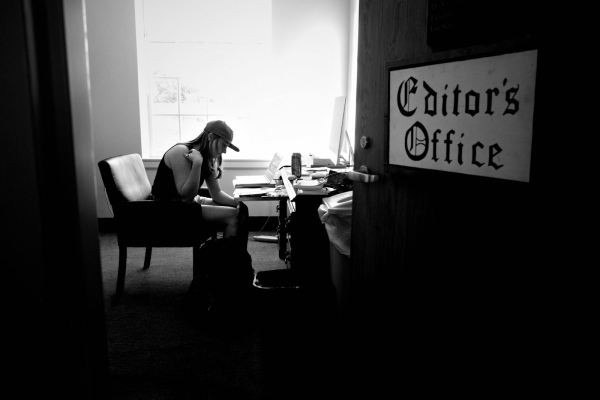Staff Editorial: University must reckon with polarization
November 5, 2020
As of crafting this staff editorial, there is one thing we can be certain about with regard to the election: 2016 was not a fluke. Prior to Election Day, many Americans assumed that in 2016, voters were frustrated by their options and were willing to give a real estate mogul with no previous political experience a chance. Voters indeed gave him a chance, but four years later, we know exactly what he’s done and what he plans to do, or not do. Rather than issue a clear refutation of President Donald Trump in this election, we have seen that virtually half the country has made the conscious choice to re-elect this president. Our country is more divided than ever before, and even if former Vice President Joe Biden pulls away with a victory, political polarization will undoubtedly outlast and grow after Trump.
To be frank, President Nathan Hatch’s email message to the university the weekend before Election Day concerned the Editorial Board. While he responded to many of the requests we issued in our last editorial about extending grace to one another, most troubling to us was his apparent disconnect to the political reality we find ourselves in.
Specifically, Hatch said, “No matter who wins this election, we have much to do. We have to figure out how to stop the spread of the COVID-19 virus, we have to continue to work toward a more equitable experience for all in our communities, and we have to manage a lingering economic recession.”
Grappling with the election results, no matter what they may be, will undoubtedly be difficult for the entire university community.”
It only takes a quick Google search to learn that Biden has outlined specific policies addressing COVID-19, racial injustice and staving off economic disaster. On the flipside, Trump has basically ignored the pandemic and stoked racial hatred across the country. We are not asking Hatch or the university to endorse political candidates, but at some point the evocation of bipartisanship is nothing more than a rhetorical tool. While in an ordinary American election Hatch’s sentiment might be considered appropriate or even realistic, it does not meet this moment. Wake Forest must recognize that our country’s partisanship has become a pervasive force in everyday life on campus.
Grappling with the election results, no matter what they may be, will undoubtedly be difficult for the entire university community. Given Biden’s popular vote lead, a large portion of the country, and of the university, will experience disappointment in the face of a Trump win. And even if Biden wins, there clearly won’t be a sweeping condemnation of Trumpism.
We encourage the university to prioritize conversations about political polarization and its long term effects in an academic and social setting during the coming months and years. We have learned that this division has become and will continue to be a societal reality, and it appears increasingly important that Wake Forest equips all of its students — and not just politics majors — with knowledge surrounding the societal dangers of political polarization.

















Hank • Nov 6, 2020 at 11:33 pm
Just a friendly reminder that while Donald Trump is not perfect his energy, spontaneity, and independence would have been infinitely preferable to a new president whose daily cognitive diminishment will be increasingly obvious. I’m familiar with early onset dementia, and Biden’s decline in office will be truly painful, if not depressing, to watch. If only a few more people had realized this and voted to save Joe Biden–and the country—from this daily register of personal and national catastrophe. Those who voted for him have now precluded the possibility of a discreet, sympathetic intervention as to his case.